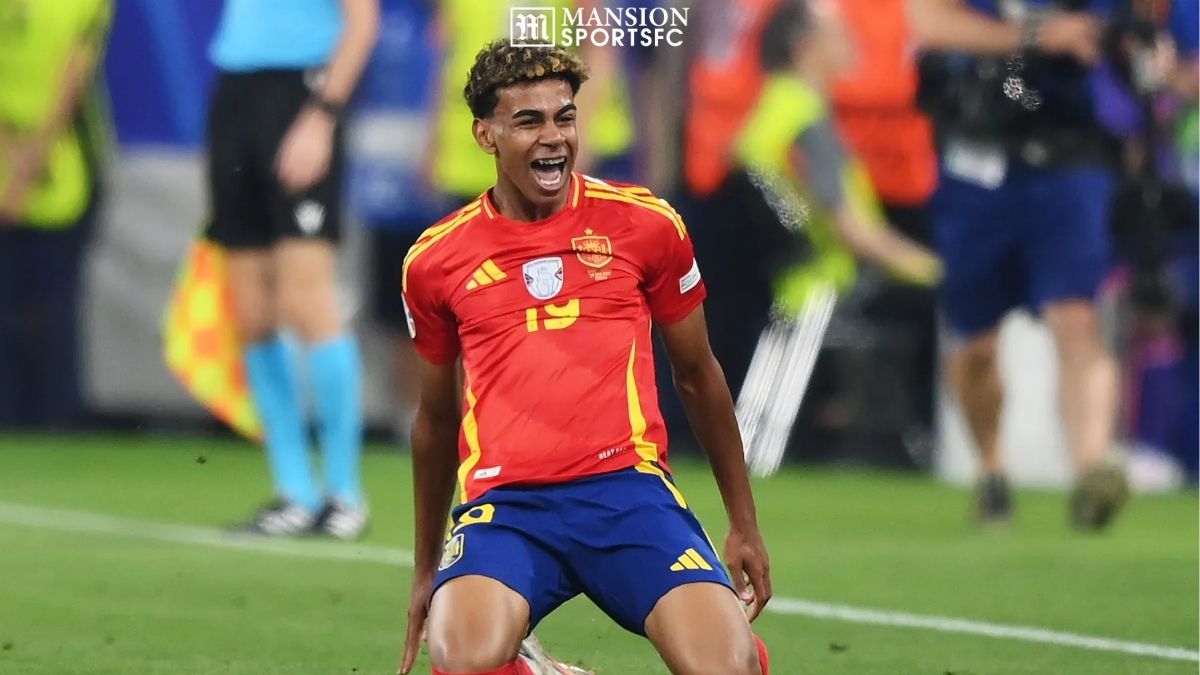
Tensions Between Barcelona and the Spanish Football Federation Begin to Ease
Mansion Sports – The strained relationship between FC Barcelona and Royal Spanish Football Federation has recently drawn public attention following an incident involving young talent Lamine Yamal during the last international break.
The 18-year-old forward suffered a pubic injury while on international duty with Spain national football team, triggering a dispute between the club and the federation over the handling of his physical condition.
The Timeline of Yamal’s Injury and Barcelona’s Accusations
Lamine Yamal was sidelined for four matches due to the injury but returned to action shortly thereafter.
Unfortunately, the problem resurfaced soon after, forcing him to withdraw from Spain’s squad for this month’s international break.
His participation in the upcoming El Clásico—scheduled in less than three weeks—is now in doubt.
Barcelona publicly claimed that Spain’s coaching staff had been aware of Yamal’s discomfort prior to the match but still allowed him to play.
The federation refuted the accusation, stating that they were not fully aware of the severity of the injury at the time.
The disagreement escalated into a public confrontation between Hansi Flick, Barcelona’s head coach, and Luis de la Fuente, Spain’s national team manager.
However, tensions have begun to ease following statements made by Barcelona’s sporting director Deco during an interview with the radio program Tot Costa (as reported by Mundo Deportivo).
Deco Explains: “Lamine Was Not in Proper Condition”
During the interview, Deco provided detailed context regarding Yamal’s fitness situation leading up to the crucial match against Paris Saint-Germain F.C..
“Lamine arrived with an issue in his pubic area. He pushed himself to be ready for the PSG match and ended up playing a full 90 minutes at high intensity. After that game, we decided to rest him against Sevilla FC to give him a special recovery program. We also sent his medical reports to the federation,” Deco explained.
He added that communication between the club and the national team staff was conducted properly, although he could not confirm whether Yamal spoke directly with Luis de la Fuente.
“I am not involved in the daily activities of the national team, so I cannot say exactly how they handle their players. But we know they take good care of them. We also maintain contact with their sporting director, Aitor Karanka. Of course, situations like this are unpleasant for everyone,” he continued.
Barcelona Emphasizes the Protection of Young Players
Deco highlighted that Barcelona’s top priority is the health and well-being of its players, particularly young stars such as Lamine Yamal.
“Our responsibility is to look after the players — Lamine, Raphinha, Marc Casadó, Marc Bernal, and others. Each of them has different needs. Lamine is a special player, not only important for Barcelona but for world football. But we must also remember that he is only 18 years old,” Deco stated.
He further explained that the club’s role goes beyond managing players on the pitch. Supporting them mentally and emotionally is just as essential as managing their physical workload.
“We need to guide them both on and off the field. Age is a factor — I’m 48, and Lamine is just 18. Yet he has shown exceptional maturity. For Barcelona and for football, having a player like Lamine is a tremendous privilege, and we must be grateful for that,” Deco concluded.
A Calmer Atmosphere, But the Relationship Remains Under Scrutiny
Although Deco’s remarks have helped ease tensions, the relationship between Barcelona and the Spanish federation remains under close observation.
The Catalan club has repeatedly expressed frustration over how young players are managed during international duty, especially after a similar situation previously affected Gavi last year.
Nevertheless, Deco’s diplomatic approach reflects Barcelona’s willingness to maintain more open and professional communication with the federation.
This strategy aims to ensure both player welfare and institutional stability going forward — a crucial step in avoiding future conflicts surrounding player management.